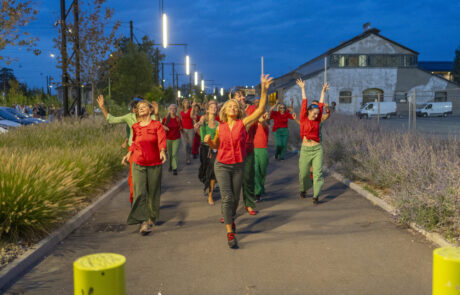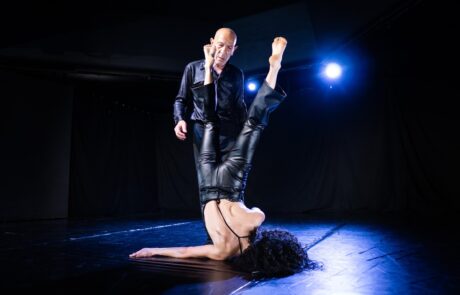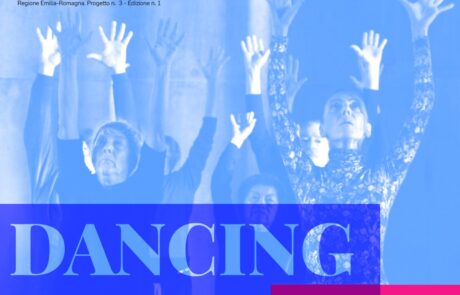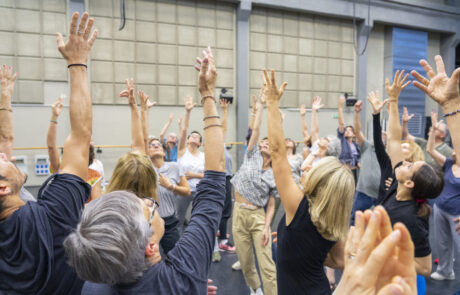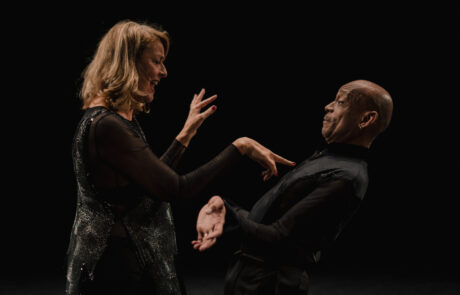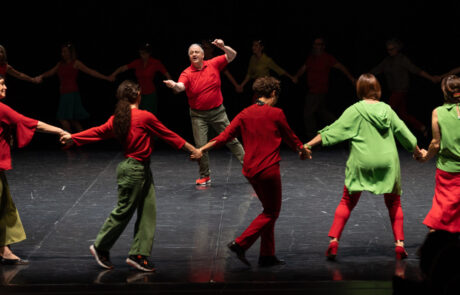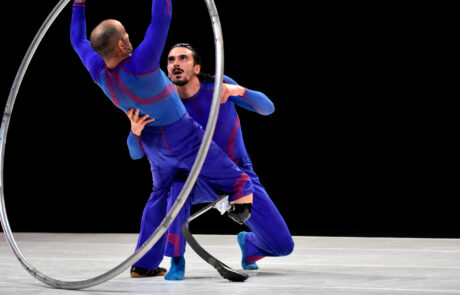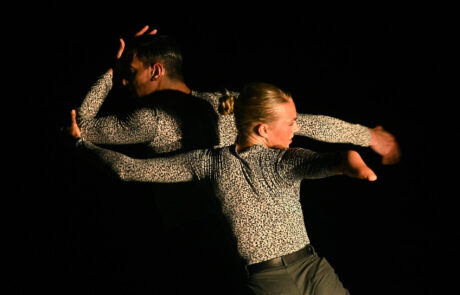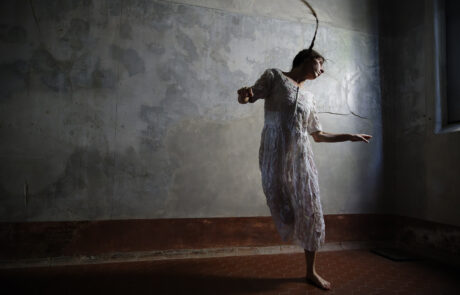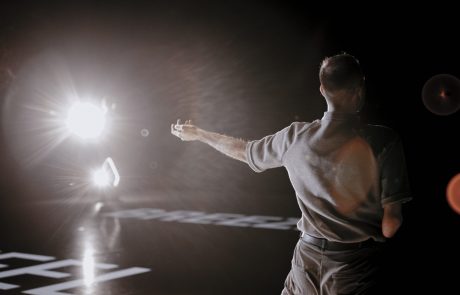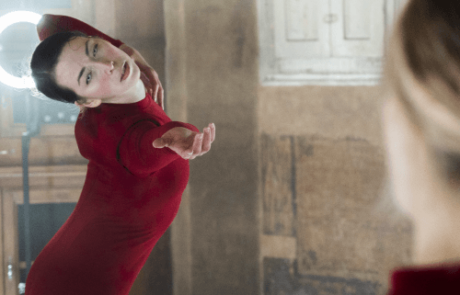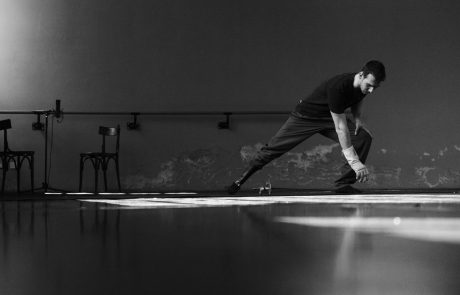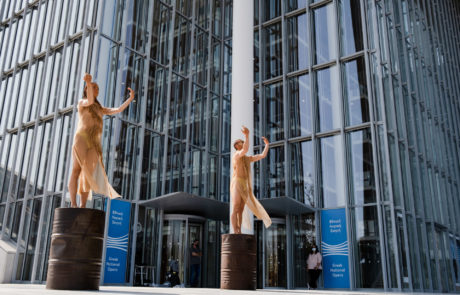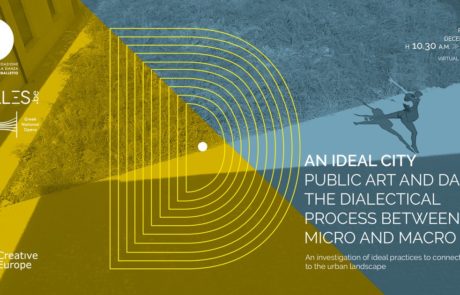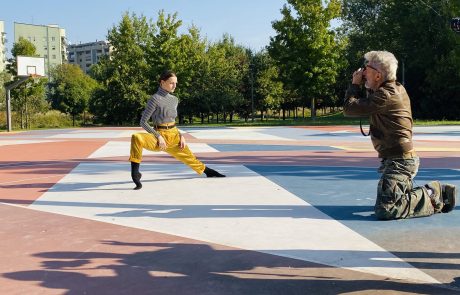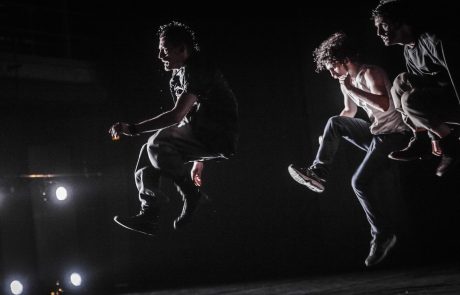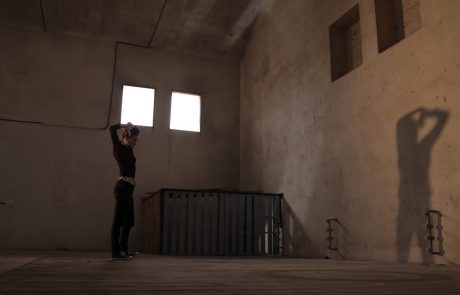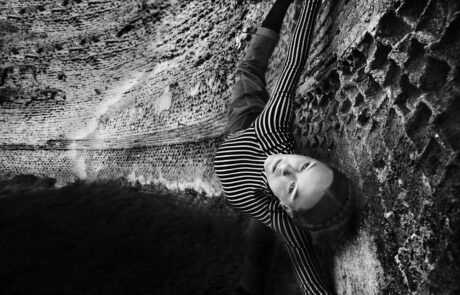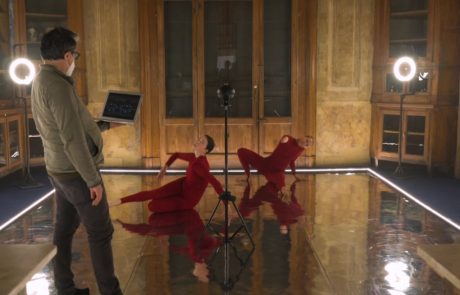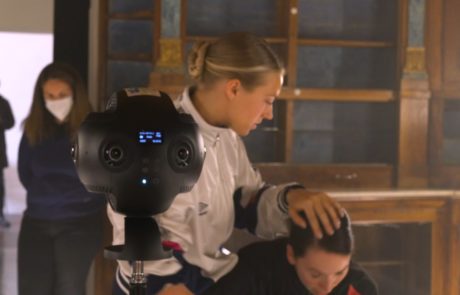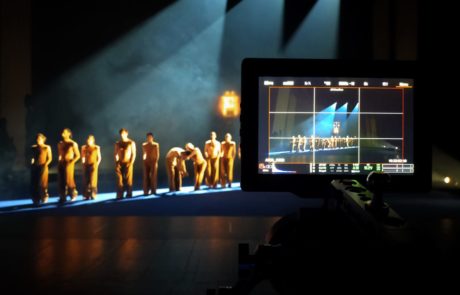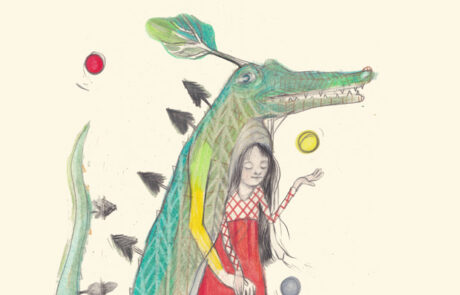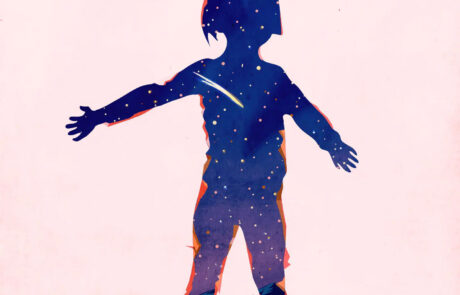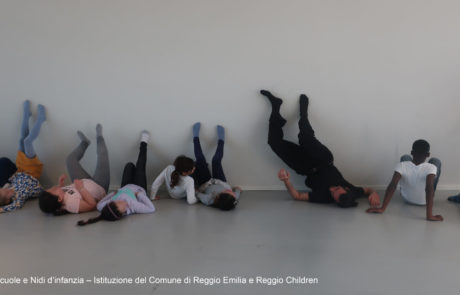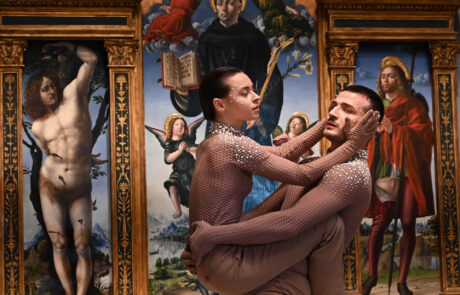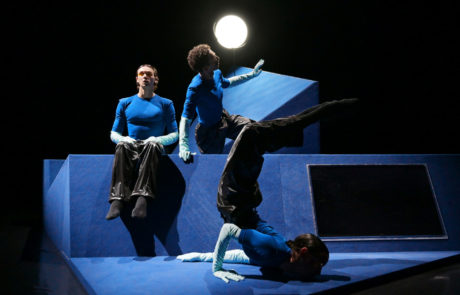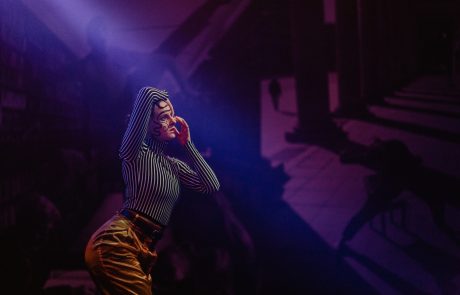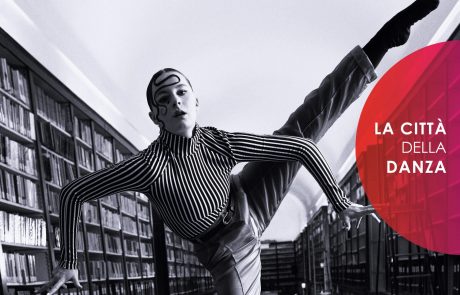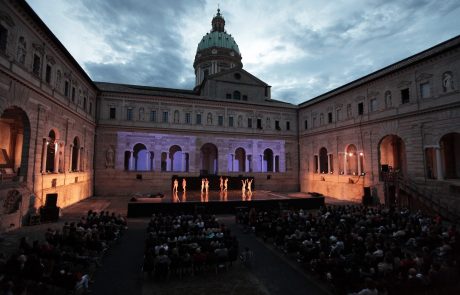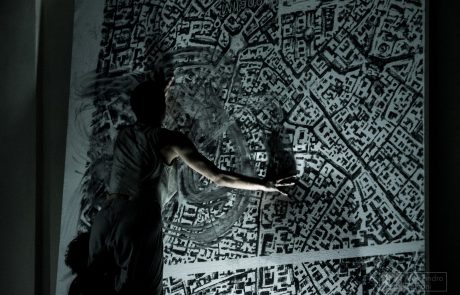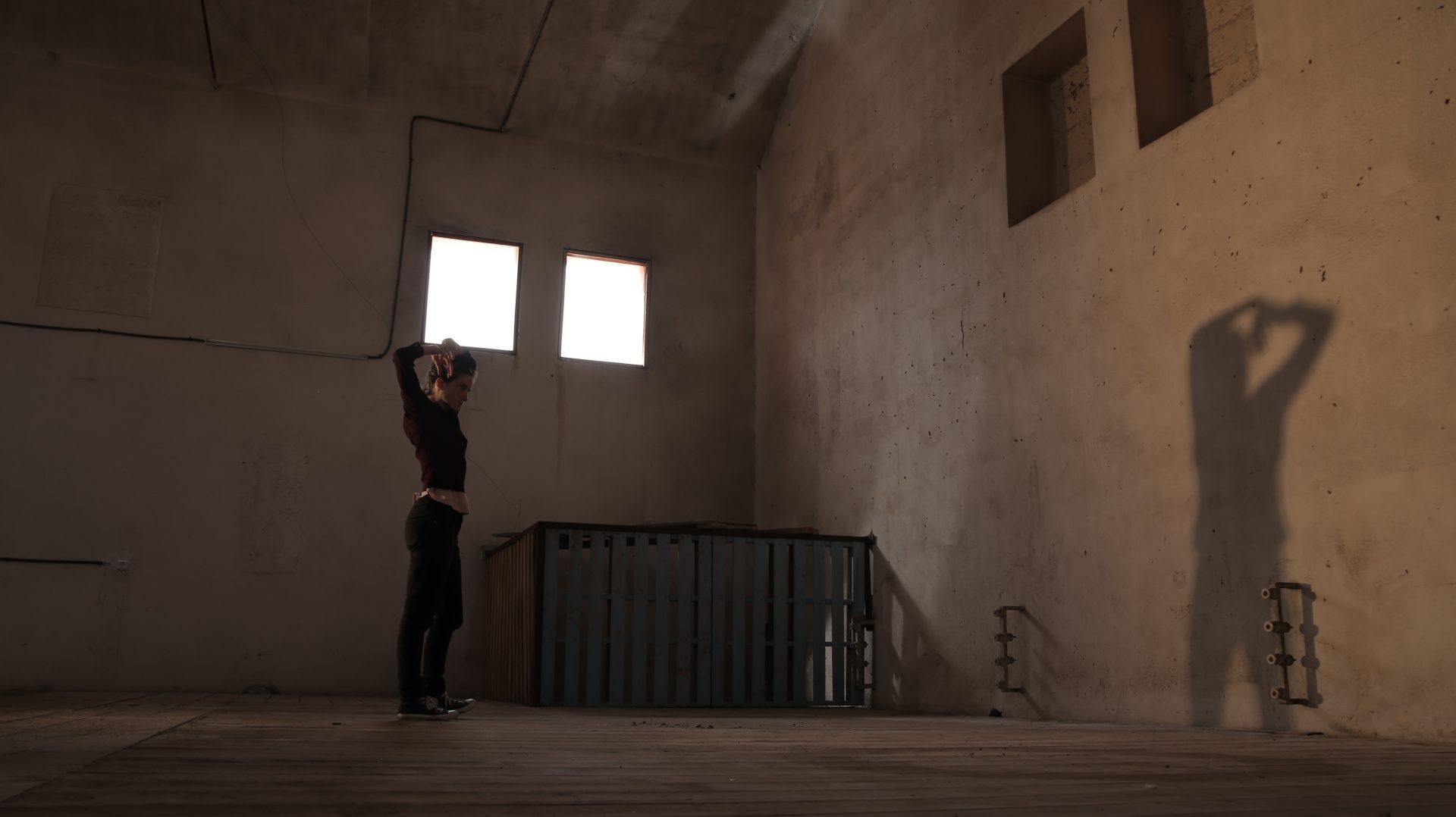On the trail of the sacred today, here and elsewhere
The social challenge facing Europe today is testing its ability to build a new and renewed cohesive identity that can integrate and encourage the active participation of the migrant communities that are living there in increasingly significant numbers.
The project has given rise to a series of residencies, exchanges and research activities linking the European capital, Brussels, which is home to a large community of Moroccan origin, with Marrakech, the capital of Morocco’s cultural identity, and Reggio Emilia, a city in the Emilia-Romagna region (Italy) with a substantial presence of Moroccan citizens, who make up its third largest foreign community. It is part of a wider exchange programme between young artists working in the field of visual, multimedia and performance arts, supported by three cultural institutions: Les Halles de Schaerbeek in Brussels, Fondazione Nazionale della Danza in Reggio Emilia and Maison de L’Elu in Marrakech.
Ten Belgian artists and two Italian artists, Gabriele Licchelli and Teresa Noronha Feio, have embarked on a creative residency and research project in Morocco and Belgium, during which they will organize creative meetings with young Moroccan artists and the local communities from Marrakech aimed at creating a moment of openness and sharing to present in the three cities involved in the project.
The concept
The work has revolved around the concept of the sacred as one of the irrational drivers of contemporary identity, but also as a potential link between artistic languages with the capacity to engender shared cultural visions.
Sacred is thus understood as an area of artistic experimentation, as a mix of cultures that, when connecting with the divine, are brought together through shared feelings, in a self-representation and self-recognition that can lead to the development of a sense of identity which we still only feel partially today. Sacred as a meeting ground between the arts, particularly video, dance and music. There will be a specific focus on research on traditional Moroccan music and its most significant trends, such as Gnawa, Desert Blues and Trance.
Final performance
IMMA ايما
(work in progress)
Mystical Images of Aisha’s Morocco
Invisible mother of death, Aisha
Immortal Aisha
In memory of Aisha
IMMA is the product of the partnership between two artists, a dancer and a film maker on the myth of Aisha Kandisha.
Teresa and Gabriele work on the concept of “collective imagination” and its oral transmission. Their collaboration began with a research project into the myth of Aisha, a Jinniyya from Moroccan mythology, whose uncertain origins lie somewhere between Portugal and Sudan. A woman of great beauty and a symbol of resistance to colonialism, a seductress and a demonic creature, she lives in the sea and appears at night in gloomy, isolated places.
Aisha belongs to the imaginary world and the oral tradition of the people from the Maghreb. She features in the stories from the Halka tradition, in Gnawa music and in folk superstitions.
IMMA is an attempt (not faithful) to capture her essence and translate it into a trans-disciplinary performance that employs choreography and cinema as languages of betrayal of the materials collected during the residency in Marrakech in March 2018. We search for her in the stolen glances captured by the tourist cameras, in the songs and stories collected in Morocco. Invisible but ever-present.
This is a compelling performance and all those taking part in it are actors. The authors of IMMA are not the creators; the materials are the product of the transmission and adaptation of original sources.
Next dates
Idea
Teresa Noronha Feio and Gabriele Licchelli
Video maker
Gabriele Licchelli
Performance
Teresa Noronha Feio
Graphic design
Mohamed Abitar
With the support of Fondazione Nazionale della Danza / Aterballetto, Les Halles de Schaerbeek, Brussels Ministry of Development, Eclat de Lune, Awaln’ Art, Movin’up – GAI
Our thanks for their generosity and collaboration go to:
Patrick Manac’h, La Maison de la Photographie de Marrakech, Awaln’Art, Brahim Koutari, Majid Karadi, Abdelfatah Elgnalf, Mohamed Rajan, Home Movies, Home Movies – Italian Amateur Film Archive, Istituto Luce
Duration 25 minutes
Performance suitable for all audiences
